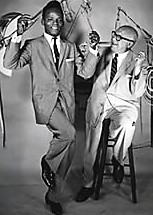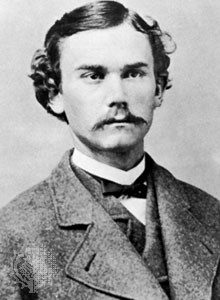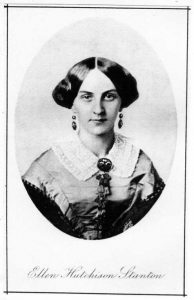(Author’s note: I had been serializing this short story because it was long but Hurricane Irma came along and I had to skip a couple of weeks. To make sure the final segment makes sense, I have decided to run the story in its entirety.)
Alphine Beauregard spent another day going through new boxes of library books and cataloguing them. Occasionally she had to take time out to answer the same old questions about where to find books about every topic. Looking at her watch, Alphine saw she had ten minutes before closing, just enough time to visit her favorite aisle—Victorian vampire romance novels.
Discretely mounting the stairs to the second floor and heading to the furthest dusty back corner of the French Quarter branch of the New Orleans Library, Alphine sought to inhale the freedom found in dangerous love literature. She felt her lungs choked by the total emptiness of her cowardly life.
Creaking rusty book cart wheels made her look down the long shadowy aisle at Ralph who pushed a new pile of Victorian vampire romance novels her way. Ralph, who probably topped out at a six-foot and a couple of inches but only weighed at most one hundred fifty pounds, kept his eyes down.
“Sorry to be in your way. Got another load of books to shelve,” he whispered.
“Didn’t you realize it’s quitting time?” she asked nervously.
The crypt silence of the library made their conversation seem conspiratorial, forbidden. Alphine’s breath quickened and her cheeks flushed. At each of their chance encounters she tried to find out more about him, but Ralph tended to answer with only a word or two and then move on. Alphine detected a secret anguish in his face.
“I just feel bad if I’m not actually working right up to five o’clock,” he explained as he picked up a couple of books to put on the shelf right over Alphine’s head. “Excuse me.”
She did not move much, only enough for him to position the books where they belonged. Alphine enjoyed sensing his physical presence–the heat of Ralph’s tall, lean body and the scent of his cologne. The fragrance was nothing special but at this moment it made her mind fog. She looked up into his dark eyes partially concealed by a shock of black hair.
“Do you like to read this stuff?” he asked.
“What stuff”
“This stuff. You know, vampires.”
“It passes the evening.” She shrugged. “What do you read?”
“Science fiction, fantasy, you know stuff like Tolkien. Marvel Comics. I know that sounds dumb.”
No, it’s not dumb at all. It’s like vampires. Nothing like real life, which can be so boring. She remained mute. Her thoughts choked somewhere in the back of her throat.
”I like to read about war in places that don’t really exist. I don’t want to think about real people in a real war in ugly countries that really do exist.”
He knew. Real life wasn’t boring. It was frightening. The fact he knew the truth excited Alphine in ways she could not comprehend. Her hand went to her neck, her thin, delicate, pale neck.
“Gotta get back to work,” he muttered and pushed the cart down the aisle and disappeared.
She had to confess just being close to Ralph made her tremble. Alphine inspected the stack of books, pulling one out to look at the cover of a virile vampire leaning into the neck of a nubile young woman. Ralph’s words about real people in real war echoed in her mind, making the novel in her hand seem inconsequential. Ralph, with his few soft-spoken words, tore away the fantasy world she read about. Her own life was too ordinary, too safe. Ralph, without knowing it, confirmed what she feared–her life had always been and probably always would be tepid, dry, stale.
This was Friday, and Alphine sighed as she drove home from the library. She had lived all her life at home with her parents in one of the respectable neighborhoods of New Orleans. Alphine had always obeyed every rule set down by her devout parents. They warned her never, under any circumstances, venture into the French Quarter. Evil people lived there who did evil things. After graduating from Tulane University with a degree in library science, Alphine got a job with the New Orleans library system. Her parents approved. Nothing bad ever happened in libraries, her parents told her. Alphine knew better. She asked to be assigned to the branch nearest the French Quarter. Her parents did not approve. After they had some time to adjust to that decision, Alphine announced she was going to rent her own apartment and live her own life. After all, she was twenty-four years old now. They told her she was a delicate flower that would wither without their protection.
Living in a greenhouse was not living. She had become one of the undead she read so much about. If she were to be undead Alphine would rather be undead away from her parents.
“Mom, Dad, it is unhealthy for you to watch me be undead, so for your own good I’ll go be undead elsewhere.”
Before her mother and father could make any sense out of her proclamation she had moved to an apartment in the garden district, the perfect location to be gloriously undead. However, after a year of living alone, she had yet to venture near the dangers of the French Quarter after dark. Now she was twenty-five years old. How she loathed her cowardice.
At the next intersection, she turned left instead of right. She knew where the vampire boutiques were. They sold the black slinky shrouds, the long black wigs, the death-white makeup and the blood red lipstick needed to integrate into the role-playing shadowy existence of New Orleans underworld nightclubs of vampires.
Vamporium was a black brick store cloaked in dead vines. A tickling bell announced her arrival, and an antique buxom woman wearing a tight, low-cut purple velour gown greeted Alphine. A pile of electric pink hair crowned her head. Her skin was a wrinkled testament to a life spent drinking too much bourbon. Her crimson lips opened in a smile, revealing aged, yellow teeth.
“Entre, my dear. I am Madame Du Baucherie. And may I be the first to congratulate you for escaping the stultifying world of suburbia. Welcome to sin.”
Hearing that pronouncement, Alphine wanted to bolt out of the establishment devoted to decadence, but she felt she had gone too far to turn back.
“I want the proper attire to attend a vampire club. You know, one of those places where people role play—“
“I know what you want,” the old woman interrupted. She firmly took Alphine’s hand and led her to a corner of the store with racks of black satin and lace dresses. Dropping the girl’s hand, Madame Du Baucherie grabbed Alphine’s breasts. “Ah good. Not so large. You will be able to wear our most scandalous gown with a neckline plunging to the navel. Women, such as I, could not wear this particular creation because of the risk of a nipple peeking through. Most inappropriate.”
Madame Du Baucherie thrust the filmy dress into Alphine’s hands and pushed her toward a dressing room. “Go meet your destiny.”
Inside the tiny room Alphine tentatively took off her clothes and wriggled into the black garment. The satin against her skin created a sensation throughout her body that scared her. As she smoothed out the dress, she heard the door open and saw Madame Du Baucherie’s shriveled arm presenting a pair of spiked black heels and a shimmering ebony wig.
“These will complete the ensemble.”
Alphine took the items, and the old woman slammed the door. Gingerly she adjusted the wig on her head. Her own hair was a bland shade of brown, limp, lifeless. Then she realized the wig was actually made with real human hair. The room did not have a mirror so she could not tell for certain if it were straight. Next she slipped on the heels which were surprisingly comfortable despite hurtling her toward Amazon-like stature. Taking a deep breath, Alphine opened the door.
Madame Du Baucherie appraised her without emotion. “One final touch—makeup.” Skillfully, she whipped out an eyebrow pencil and filled in the spaces on the young woman’s brow. She flicked the thin eyelashes with a black brush and applied blood red lipstick. Lifting a powder pad, she paused to consider Alphine’s complexion. “Perfect as is.” She put away her tools of the trade. “Ah to have that deathly pallor again. Flawless.”
She took firm control of Alphine’s shoulders and turned her toward the mirror. “Behold yourself.”
What she saw in the mirror both frightened her and edged her toward spontaneous orgasmic combustion. Alphine could not discern one feature that spoke of her past as a protected fragile flower quivering in the breezes from the foreboding Mississippi River. And she liked what she saw.
“You are my most inspiring creation. Of course you need midnight black fingernail polish.” Without a breath Madame Du Baucherie added, “The dress, shoes, wig, makeup and nail polish come to three hundred and fifty dollars, including tax.”
“Let me get my purse and things,” Alphine whispered. If she had even the slightest doubt about her lifestyle decision, Madame De Baucherie had banished it. She picked up her librarian attire and her purse and headed back to the counter where she handed her credit card over.
With efficiency the old woman zipped the card through, punched the proper buttons, extended a pen to her customer to sign and placed her library clothes in a shiny black bag. Before handing the bag to Alphine Madame Du Baucherie extended a thin withered finger, hooked it into the vee of the neckline at Alphine’s navel, pulled it forwarded and peered down.
“Panties. Tres gauche. Remove them before your evening at the clubs. Sally forth unto war.” She pushed the young librarian toward the door. “Go to the clubs. Find a young man and destroy his soul.”
Alphine got into her car, started the engine and drove down the street toward the infamous French Quarter. As the last rays of the sun disappeared, the garish neon lights in the distance flickered. They seemed to be beckoning her to join the evil celebrations of jazz, vampires and illicit sex. Even the thought of illicit vampire sex set to the rhythms of jazz made her tingle.
She wondered if the tall, pale young men dressed in black satin shirts would stand close to her at a bar and look down into her exposed bosom. Would she feel their body heat? Would she smell the essence of their bodies? Would she hear their long languid sighs as they assessed her fine black gown fresh from the racks of Madame Du Baucherie’s Vamporium?
Slowly driving down Rampart Street, Alphine noticed one particular night club, Club V-Vampire, and its name intrigued her. Club V-Vampire. Why did it have an extra “V”? She concentrated on what exotic words began with a “V” that would be related to the word vampire. Alphine began to become exasperated with herself. She was a professional in the world of books and words, and she could not even think of a good adjective for vampire that began with a “V.”
Have patience, she told herself. She would soon find out once she entered its sinister doors. First she must find a parking space. Less than a block away from Club V-Vampire she found a parking lot under a lamppost. Her parents always told her that if she had to go out at night at least park under a streetlight. Alphine rolled down her window to pay the attendant the fee when a young man with a wan face staggered toward her car. His pale features were not painted on so he would look like a vampire. His bilious cheeks showed he was about to retch.
Leaning into her car window, the young man’s blood-shot eyes widened. He motioned to the parking attendant to come over. “Hey, man, this girl’s dress is so low you can see her bellybutton!”
His chest heaved, and she quickly rolled up her window just before the young man opened his mouth and vomited on her car. His eyes glazed over. He staggered into the darkness. Cracking her window, she informed the parking lot attendant, “I’ve changed my mind.”
“That’s all right,” the attendant replied. “It’s two-for-one beer in all the joints. This ain’t the only car that’s gonna get puked on tonight.”
When Alphine reached her apartment complex in the garden district, she took off her wig and her high heels and deposited them in her shopping bag before she went inside. After she carefully hung her new dress in the closet and placed the wig and shoes in a drawer of her dresser, she changed into her cotton pajamas, poured herself a small glass of milk, put five saltine crackers on a saucer and went to bed where she re-assessed her situation.
No one ever vomited in a Victorian vampire novel. Alphine was not expecting that turn of events. Perhaps dissipation was like any other mission—it needed intensive research and planning. She was good at that. That was what properly trained librarians did. They researched. She decided to recuse herself the rest of the weekend to recover her senses. On Monday, fully refreshed, she would launch a well-organized attack on the world of gothic decadence. Alphine was optimistic. After all, she had already learned one vital lesson—don’t go vamping on two-for-one beer night.
Alphine became distracted every time she tried to research the French Quarter’s lurid nightlife when she saw Ralph shelving books. She walked over to him pretending to read the titles on his cart.
“Did you have a nice weekend?” she whispered.
“I guess.”
“What did you do?”
“Just read.”
“Oh yes, I forgot. Science fiction and fantasy.”
As much as she wanted to learn who Ralph was and what made him the way he was, Alphine feared his rejection. Perhaps he was not just shy. Maybe he actually did not like her. Did she have the courage to discover? Her heart began to race.
“I thought all weekend about what you said Friday about real people in real wars in ugly countries,” she pressed on, finding her voice—firm but caring. “It made me wonder if you were in the military.”
“Yeah.”
“Well, thank you for your service.”
“Don’t thank me. I didn’t do anything, just survived.” Ralph paused and wrinkled his brow. “I’m sorry. That sounded mean.” He pushed his cart down the aisle.
Alphine watched him disappear around a corner and felt her heart break a little. The rest of the day when she caught Ralph’s attention, she did not say anything but merely smiled. Every day that week she found a reason to speak to him, even if it were nothing more than a request that he take down a book for her on a top shelf. Friday arrived, and she was faced with another weekend trying to live out her fantasies of reveling in a world of vampires. Alphine chose a proper place and moment to initiate another conversation with Ralph.
“So do you like working in the library?” she asked him in the back room where he sat applying labels inside newly arrived books.
“Not really. But it gives me time to think about what I really want to do.”
Alphine was taken aback that he found the work she loved to be tedious. “So you find this boring?”
“I like boring.”
Alphine shook her head. Perhaps he liked her because she was boring. That did not make any sense to her. “What doesn’t bore you?”
“I think archaeology.” Ralph finished labeling the last book and stood. “I almost had a degree in history before I joined the Army.”
“Why did you leave college?”
He stopped in the door way. “I don’t know. I thought it was better to live life than just read about it.”
Alphine thought about her own urges to seek out real life. She tried to figure out how to ask her next question when Ralph cleared his throat.
“I found out it’s all living. “No matter what you do or where you do it, it’s still all living.”
After she left work on Friday afternoon, she decided to drop by the neighborhood drugstore to buy a new scent of perfume for her escapade in the French Quarter Saturday night. Inside the store, which looked entirely too modern for its surroundings, Alphine found a modest selection of perfumes, none of them satisfactory. An array of the best brands was locked in a glass case.
Catching her eye was a bottle of perfume worn by her mother’s late aunt Ticey. When Alphine and her parents attended the funeral for Ticey’s husband, she asked her great aunt the name of the scent. Cavort, Ticey replied. It came in a black bottle.
Alphine had only met her aunt Ticey two or three times at family reunions. Ticey looked and smelled like she always enjoyed a good time, which evidently was the reason Alphine’s mother had never invited her to dinner at her sanctuary of piety. If that perfume could put such a happy face on Ticey, that was the perfume for Alphine.
Looking around for a store clerk, she spotted an elderly woman, spraying Windex on the next counter and vigorously wiping it off with a paper towel. Alphine walked to her.
“Excuse me, ma’am, I’m interested in one of the perfumes in the locked glass cabinet.”
“Let me get the key,” the clerk said without lifting her head. “I’ll meet you over there.”
The voice sounded familiar, and Alphine could not quite place it. When the old woman arrived with key, Alphine’s eyes widened when she saw the clerk’s face.
“Madame Du Baucherie!”
Unlocking the case, the woman laughed. “Oh dear me. What a name. And which perfume are you interested in?”
“I know you! You’re the lady at Vamporium in the French Quarter!”
The old woman, dressed in a light blue skirt and white lace blouse, lifted her withered finger to her pale lips and shushed the young lady.
“Oh dear me, no. My name is Bessie Jones.”
Alphine recognized the black fingernail polish. “Of course. You’re right. Perhaps I made a mistake. I’m sorry. Let’s see, I want Cavort. It’s in the black bottle.”
“Yes, miss.”
The old woman brought it to Alphine, opened it to let her sniff the scent.
“Do you recommend this particular perfume?” Alphine asked.
“My gracious. I’m just a drugstore clerk. I wouldn’t presume to tell you what to purchase.”
Alphine handed her the credit card. The clerk ran it through the machine and handed it back with a sweet smile. “Now, you have a blessed day.”
On her way home from the drugstore she drove by the Vamporium where she had bought the dress. The sign was down, replaced with a Realtor sign. For sale. She stopped her car, got out and went to peer into the window. The shop was bare.
Out of curiosity, Alphine also went by Club V-Vampire to make sure it was still there. It was, but rather pedestrian looking in the sunlight. An old man, his long, sparse gray hair dangling over his ears, swept the sidewalk and then rearranged the wrought-iron table and chairs in front to make sure they looked just right for the revelry that night.
Alphine took a long soak in a tub of hot water Saturday preparing herself for an evening as a vampire in the French quarter. She invoked the spirit of the bloodsucking temptresses she had read so much about. They would give her courage to break the bonds of timid respectability forged by her parents. From this moment her life would be her own.
Taking her time, Alphine put on her dress according to Madame Du Baucherie instructions, sans lingerie. She quickly dismissed her revelation that Madame was nothing more than another old woman trying to make a living. Even as Bessie Jones she knew which perfume to recommend to Alphine. Its name excited her imagination—Cavort. Her hands were steady as she applied the lipstick and eyeliner. She knew what she wanted and what she would be willing to risk to attain it.
Shadows had settled comfortably among the buildings along Bourbon Street. Music rang out from every open door, but nothing deterred Alphine from her destination, Club V-Vampire. When she walked in, she appreciated the low, eerie melodies engulfing the room. It was the perfect environment for catastrophic romance. She slowly slung one hip forward and then the other, emulating the stride of a cat. At the bar, an old man, his gray hair slicked back sinisterly, poured a beer for a customer and smiled at her. Two teeth were missing, but no matter.
“What does the young lady desire?”
Alphine looked at the sign listing all of Club V-Vampire’s specialty drinks: Scarlett O’Hara, Bloody Mary, Virgin Mary, Mai Tai, strawberry daiquiri…. She soon caught on that all the drinks were red, blood red. She ordered a Bloody Mary, left a hefty tip and settled at a small table lit by a hanging Tiffany lamp which illumined her bosom perfectly.
Within a few minutes a tall young man in full tuxedo and opera cape swirled up and leaned over Alphine. When he smiled, he exposed perfectly even white teeth with his canines orthodontically transformed into fangs. She breathed in. This was her moment.
“I vant to drink your tomato juice,” he intoned, trying to sound like Bela Lugosi.
Alphine did not protest when he swooped her glass up and drank. So this was saturnine seduction. Her heart was pounding. All her senses were magnified to the point of thrusting her toward insanity. Then she watched his pale face twist in revulsion. He spat the red liquid onto her dress. It was really quite disgusting.
“This isn’t tomato juice! It’s got some kind of alcohol in it!”
“Yeah, Charlie,” the bartender called out in a nasal voice that simply screamed Brooklyn. “That’s why it’s called a Bloody Mary!”
His whole body shook. “I thought this was a vegan place!”
“Vegan doesn’t mean no booze, Charlie,” the old man said as he poured Southern Comfort into a glass of cranberry juice. “We don’t serve animal products. Booze ain’t an animal product.”
“Give me some water to wash this garbage out of my mouth!”
Now Alphine realized what Club V-Vampire stood for—Vegan Vampire. She took her napkin, wiped her dress off the best she could and walked out into the night, passing all the noisy clubs back to the parking lot, hoping no one had puked on her car again.
Another good weekend wasted.
She did not sleep well Saturday night. Nor did she sleep well Sunday night. Her many disenchantments with vampire life in the French Quarter flashed before her eyes. One young vampire vomited on her car but not before commenting on how low cut her dress was. She discovered Madame Du Baucherie was just another old woman making a living as best she could. And then a vegan vampire spat out his Bloody Mary on her because his drink had alcohol on it.
But as morning arrived her thoughts had turned to her fascination with the tall, slender, inscrutable Ralph. He shelved books for a living. His military experience in Afghanistan somehow haunted him. Few words passed his lips, his thin, impassive lips. What was his hunger? Everyone needed a hunger to feed life forces through the veins. He said he wanted to study archeology, but he remained in the library, rolling a cart of books up and down the aisles.
Alphine’s heart raced. A veneer of perspiration kept her from sleeping. No vampire could induce this catalyst in her body. And she did not know if Ralph even gave her a second thought. What a stake through her heart.
Monday morning she went to her closet to select from her librarian couture which her smothering mother had bought for her. Each time she reached for a hanger her stomach tightened, much like the way a poison would cause her organs to spasm. In frustration Alphine grabbed her Madame Du Baucherie creation with the intention of throwing it into a trash basket where all her dreams of desire now resided. Stopping short, she returned it to the closet. She did not understand why but she sensed her very existence depended on saving the black satin gown for another day.
Instead, she took a tight midnight blue skirt which she usually wore with a business imbued jacket. After putting it on, Alphine took an ordinary white cotton blouse from a hanger where it lived with a gray pant suit. After hesitating, she went to her lingerie drawer and pulled out a white lace brassiere which she had never worn and put it on. Then came the blouse, which she left unbutton to give a slight view of the lace.
After dressing she put on the spiked high heels. Alphine took a moment to apply the eyeliner and then the blood red lipstick. As a final touch she lightly daubed a hint of Cavort behind each earlobe. Taking a look at herself in the mirror, she noticed she had forgotten to comb her hair. Her dishwater shade of brown locks looked unorganized after a long night of tousling about in bed. She turned and left for work.
The click clacking of her high heels turned heads as she entered the library. Not acknowledging anyone who spoke to her, Alphine walked up and down each aisle until she found Ralph with his cart of books. She watched him as he looked up at her. A slender volume fumbled from his hands. She stopped unnervingly close to him.
“Have you ever been kissed?” Alphine chose each word and each nuance carefully.
Ralph’s eyes blinked. “No one’s ever been able to reach up that far.”
Alphine put her hands on his boney shoulders and pushed down, causing him to go to his knees. She leaned in and placed her lips upon his. Ralph’s lips were fuller than she supposed. And warmer.
In that split second before he had to react–pulling away or embracing her—she realized this was living. Ralph was wrong. Living was not just living. Her parents were wrong. The goal of life was not security. Madame Du Baucherie was wrong. Living was not destroying souls.
Living was knowing what you desired and not being frightened to fail.




